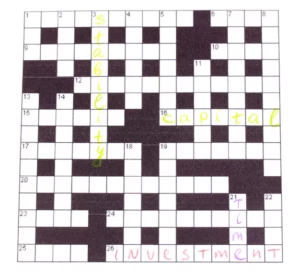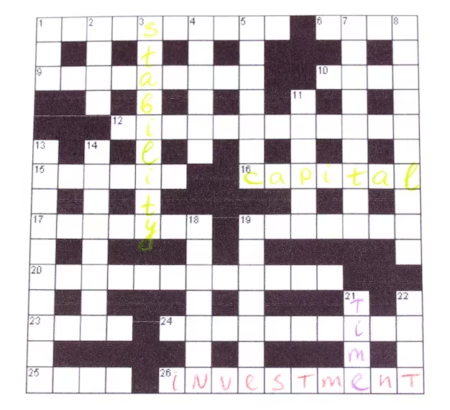🌟 Introduction: A Riddle Wrapped in Language
a question, cold as frost but warm as thought:
“What is a homophone for a winter vegetable?”
And just like that, hearts leaned in, minds stirred like soup pots on winter stoves.
Was it a crossword clue? A pun? A poem?
Maybe it was all of them—
a dance between sound and meaning,
between cold crops and cozy language.
Let’s wander into this garden of words.
📚 What is a Homophone, Really?
Sound Twins in the Language World
Homophones are soulmates with different destinies.
They sound the same, but walk different roads.
“Leek” and “leak,” “knead” and “need,”
like two children named hope, raised in different homes.
Homophones vs. Homonyms vs. Homographs
Let’s sort the seeds:
- Homophones: same sound, different spelling/meaning
- Homonyms: same spelling and sound, different meaning
- Homographs: same spelling, different sound/meaning
In the winter garden of language, homophones are frost-kissed riddles waiting to bloom.
🥕 Winter Vegetables: The Cold Season’s Comfort
The Magic of Rooted Nourishment
Carrots, turnips, parsnips—
They grow in cold and nourish in quiet.
Leeks, kale, cabbages — they survive the chill.
They speak of endurance, of flavor through frost.
Language in the Garden
Even vegetables speak in metaphors.
A leek might leak.
A yam might yammer.
The garden, too, is a poet.
🎭 The Riddle Explained: “Homophone for a Winter Vegetable”
The New York Times Puzzle Effect
This curious phrase found its spotlight in the NYT Crossword,
where clever minds spar over morning coffee.
And suddenly, the world asked:
What’s a vegetable that sounds like a word it isn’t?
A Closer Look at Clues
“Winter vegetable” gives us leek.
But what’s its sound-alike twin?
Leak. A word of drip, of loss, of secret escape.
Now the riddle glows.
🧅 The Most Famous Answer: “Leek” vs. “Leak”
What Makes It Poetic?
A vegetable that sounds like a quiet betrayal.
Leak—like love lost through cracks.
Leek—like something you boil for healing broth.
They share sound but diverge in soul.
Layers Beneath the Surface
A leek peels in gentle layers,
just like this riddle.
Peel it back, word by word,
and you find a little warmth, a little whimsy.
💌 Why We Love Language Play
Puns as Poetry
Puns are misunderstood poets.
They laugh, yes. But they also say,
“I see your shape and your sound and your soul.”
They invite us to pause—and giggle—at the elegance of error.
Laughter, Learning, and Love for Words
A child says “bare” instead of “bear.”
We smile.
Because it’s sweet. Because it’s close.
Because learning language is dancing with near-misses.
🌬️ The Winter Vibe in Words
Language as a Cozy Blanket
We wrap ourselves in words when the world feels too cold.
Puzzles become our fireside,
Letters our mittens.
We warm ourselves in wit and wonder.
The Cold’s Influence on Creativity
Winter strips everything back.
No blossoms, no birds.
Just bones, breath, and brains.
And into that stillness?
Comes poetry.
✍️ From Crossword to Connection: The Human Side of Puzzles
Grandparents, Coffee Tables, and Sunday Mornings
Puzzles are passed like heirlooms—
from wrinkled hands to little ones,
a shared smile over a sneaky clue.
And somewhere in the middle,
a homophone slips through the cracks and into memory.
Why Solving Feels Like Home
Because to solve is to understand.
And to understand is to belong.
One clue, one answer,
and suddenly we’re all in the same room.
🧠 Brain Games and the Emotional Mind
How Language Fires Memory and Joy
Crosswords tickle the hippocampus,
Where memory and delight entwine.
Homophones ignite surprise—
“Wait, that sounds like… oh!”
Homophones and Healing
For those with fading memory,
a familiar sound can be a lantern.
“Leek” might lead to “leak,”
and suddenly, a forgotten soup returns to the mind.
🌱 When Words Grow: Language as Living Soil
Sowing Meaning in Sound
Words don’t stay where we put them.
They grow.
They bloom.
They migrate and mate with memory.
Growing Vocabulary, Growing Soul
Every homophone we meet teaches us duality.
How one sound can be many things.
Just like grief. Just like joy.
🕊️ Mistakes Are Welcome Here
When Leeks Become Laughs
Ever write “leak soup”?
We’ve all done it.
And that’s okay.
Language forgives, especially when it’s cold outside.
The Joy in Getting It “Wrong”
Every mistake is a new poem.
And every homophone reminds us—
There’s more than one way to say what we feel.
🔄 Why This Phrase Went Viral
Twitter Threads & NYT Discussions
One clever clue.
One burst of curiosity.
And suddenly, “homophone for a winter vegetable”
was echoing through screens like wind through trees.
Why Everyone Had a Guess
Because riddles are roads.
And humans love to walk them.
Together.
🎨 Wordplay in Art, Literature, and Music
Shakespeare’s Puns and Poetic Roots
He loved them.
“Lettuce be friends.”
“Mine eyes smell onions.”
Puns are old as poetry, fresh as frost.
Wordplay as Expression
Rappers, sonneteers, children—
They all play with words.
And in play, we find power.
🧤 Holding Hands with Language in Cold Times
The Warmth of Familiar Phrases
We say “cold as ice” and “warm the heart”
and don’t even realize we’re poets.
Language is a scarf we’ve all shared.
Why We Cling to Clever in Chaos
Because when the world spins too fast,
a tiny riddle brings us back to the present.
Back to joy.
💡 Other Homophones You’ll Love
- Flour / Flower 🌸
- Mail / Male 💌
- Pair / Pear 🍐
- Sole / Soul 👣
- Bored / Board 🪵
Each one a spark in the cold of comprehension.
🌹 Conclusion: Words That Nourish Like Winter Roots
So next time you see the phrase
“homophone for a winter vegetable”,
don’t just think crossword.
Think poetry. Think warmth. Think wonder.
For in that little riddle is a universe—
Where leeks leak and leaks heal.
Where laughter lives and learning lingers.
Let’s grow language like a winter garden—
quiet, deep, and full of life beneath the frost.
❓FAQs
Q1: What is the answer to “homophone for a winter vegetable”?
A: The most common answer is “leek” (homophone of “leak”).
Q2: Why did this phrase become popular?
A: It appeared in puzzles like The New York Times crossword and sparked curiosity for its poetic riddle-like nature.
Q3: What’s the difference between homophones and homonyms?
A: Homophones sound the same but differ in meaning/spelling. Homonyms can sound and be spelled the same but have different meanings.
Q4: Why are homophones emotionally engaging?
A: They create surprise, humor, and connection by playing with sound and meaning in unexpected ways.
Q5: How do word games like this impact mental wellness?
A: They stimulate memory, reduce stress, and foster emotional connection through shared discovery.








